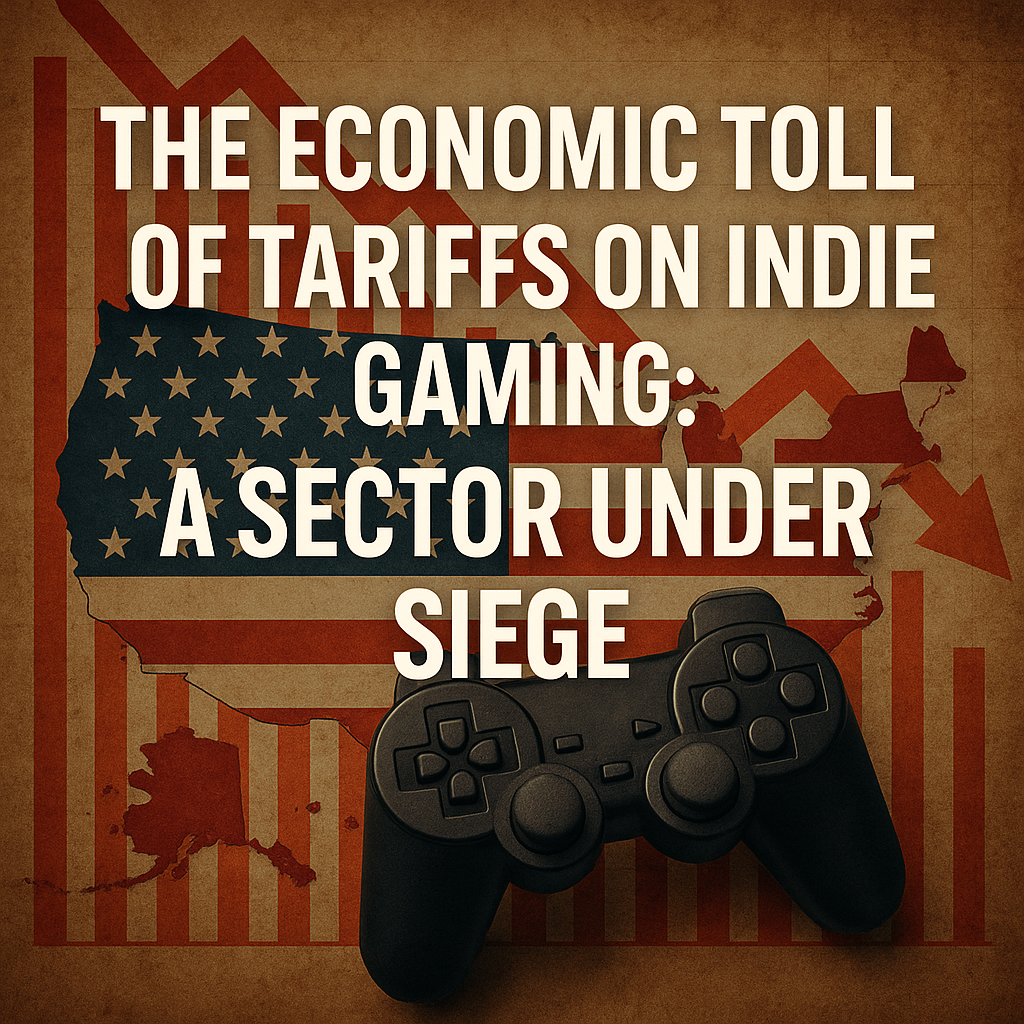As trade wars escalate, tariffs on imported goods have sent shockwaves through global markets, with the gaming industry emerging as an unforeseen casualty. Independent game developers—the lifeblood of innovation within this sector—are grappling with unprecedented challenges. Operating on limited budgets & reliant on international supply chains, these creators face mounting pressures that threaten their sustainability. This article examines the far-reaching impact of tariffs on indie gaming, analysing rising production costs, shifting price dynamics, adaptive strategies, & the broader implications for the industry’s future.
Escalating Costs: A Barrier to Creativity
For indie developers, affordable hardware is essential. Graphics processing units (GPUs), development kits, & other critical components, often sourced from tariff-targeted nations like China, have seen price surges—sometimes exceeding 30%. Such increases strain the finances of small studios, which lack the reserves of larger firms. The consequences are severe: projects may be deferred, features scaled back, or, in extreme cases, abandoned entirely. As one industry observer noted, “These costs are inevitably passed on to consumers, & this is going to make your games more expensive,” highlighting the direct link between tariffs & the economic pressures facing developers.
Price Sensitivity & Consumer Response
Rising production costs inevitably affect game pricing, a sensitive issue for indie titles traditionally positioned as budget-friendly alternatives to AAA offerings. As developers pass on these expenses, consumers—already navigating tariff-driven inflation in other sectors—may resist higher prices, potentially reducing sales volumes. Compounding this, the uncertainty of ongoing trade disputes fosters market instability, prompting gamers to delay purchases. This hesitancy risks further eroding the revenue streams that indie studios depend upon, amplifying the tariffs’ disruptive impact.
Strategic Adaptations: Resilience in Adversity
In response, indie developers are deploying innovative strategies to mitigate these pressures. A shift towards digital-only releases leverages platforms like Steam & itch.io, circumventing the tariff-related costs of physical production & distribution. However, even this approach cannot fully insulate developers from rising hardware expenses. Some are exploring alternative suppliers or localised manufacturing, though such transitions demand time & resources that many lack. Larger players, such as Nintendo, have adjusted by delaying product launches—such as the anticipated Switch 2 preorders in the US—to assess tariff implications, a tactic smaller studios may struggle to emulate.
Long-Term Horizons: Transformation or Decline?
Should tariffs persist, the indie gaming landscape could undergo profound changes. A reduction in new releases seems likely as funding dwindles, though a pivot towards less resource-intensive games—such as narrative-driven or retro-style titles—might emerge as a cost-effective alternative. This shift could spark a wave of creative innovation, redefining the sector’s output. Concurrently, regions less encumbered by trade disputes may witness a rise in local gaming industries, diversifying the global market. However, these potential benefits hinge on developers’ ability to weather immediate financial challenges.
Preserving a Vital Ecosystem
The indie gaming sector stands at a critical juncture, its vibrancy imperilled by tariffs yet buoyed by its inherent adaptability. Community support remains a lifeline—crowdfunding & early access models offer avenues to offset costs, while player advocacy can sustain demand. The cultural stakes are high: a diminished indie scene risks stifling the creativity & diversity that define it. By prioritising indie titles, the gaming community can bolster this resilient ecosystem, ensuring that tariffs do not extinguish the innovative spirit that colours the industry’s future.
Unless otherwise noted, image assets above are NOT original content & are shared under fair use doctrine with NO claims to authorship or ownership.
Contact necrolicious@necrolicious.com for credit or removal.
This post was sponsored by…ME! If you’d like to support, please buy my original meme merchandise or check out my affiliate links to get yourself some other cool things. Additional affiliate links may be contained in the above article. If you click on an affiliate link & sign up/make a purchase, I may earn a commission. This does not increase the price you pay for the product or service, so it helps support this website at no cost to you.
